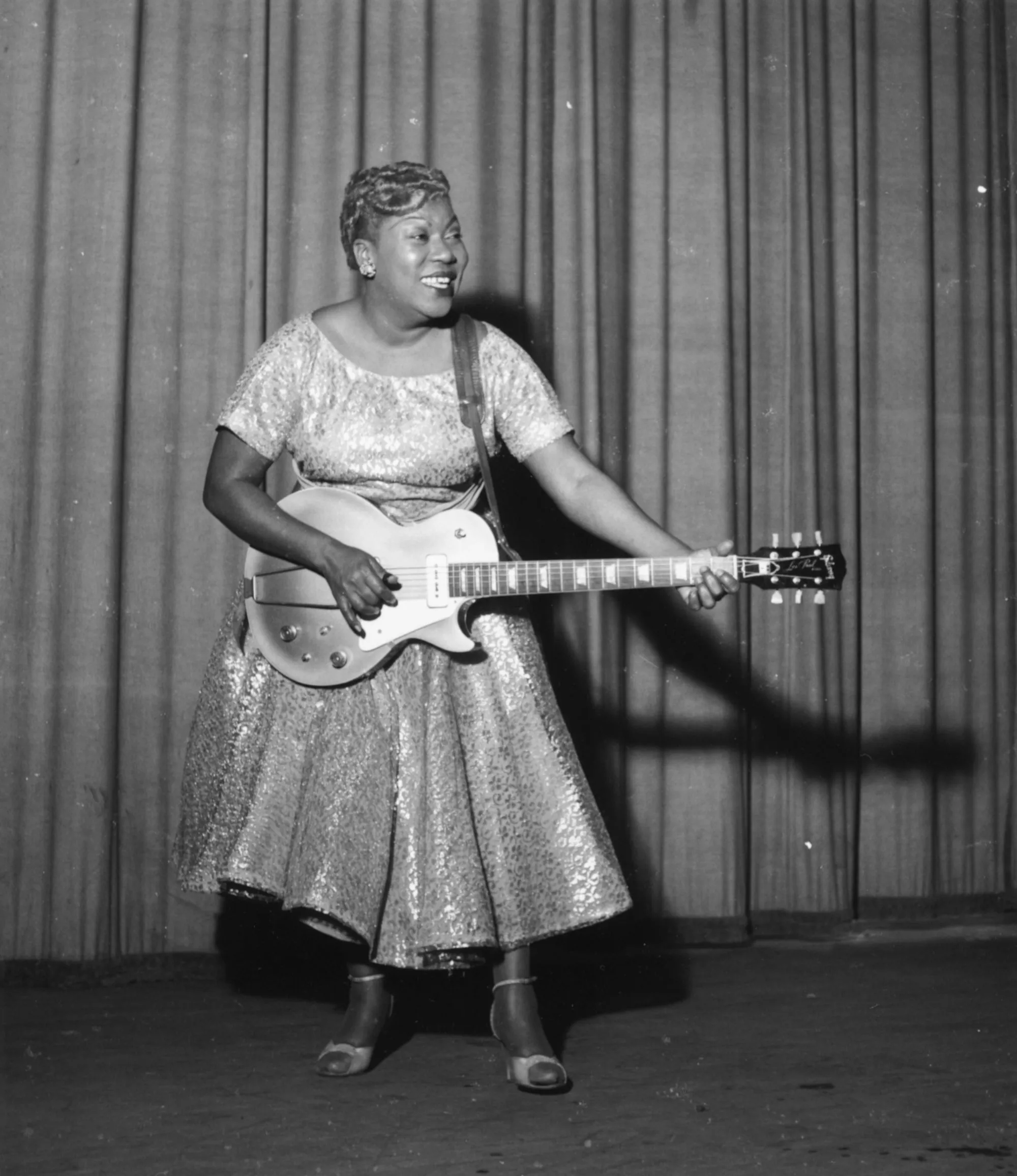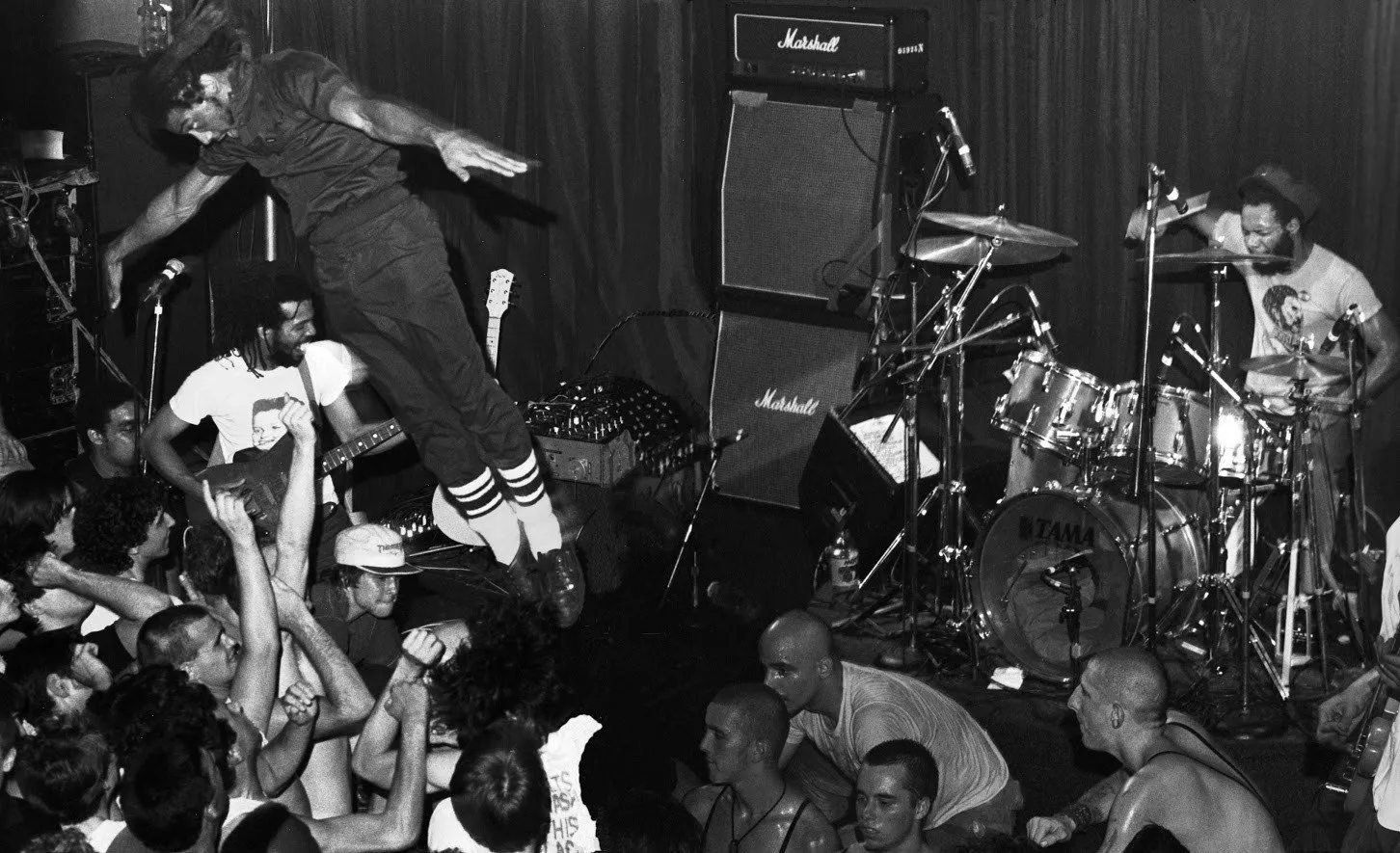Unit A
Activity 4
Differentiation
Appropriation vs appreciation
Ressource affichée de l'autre côté.
Faites défiler pour voir la suite.
Faites défiler pour voir la suite.
Ressource affichée de l'autre côté.
Faites défiler pour voir la suite.
Faites défiler pour voir la suite.
Text document A
Text A
[...] Lastly, the trend of showing off the negative stereotypes of black culture and disregarding
the other parts that are involved, demonstrates a
lack of understanding and respect for the music
one is taking. [...]
Rock and Roll is another great example, while jazz improvisation, blues and R&B were the starting points for the growth of the genre, when artists such as Chuck Berry and the underrepresented Sister Rosetta Tharpe began to play around with the ideas on an electric guitar, you would never know it without going out of your way to learn music history. Elvis Presley is a classic example of someone who was influenced by black music, but reaped the benefits that many of his black influences never enjoyed. Even nowadays, I think we can all agree that rock music is considered to be a white genre, but its history isn't acknowledged by many. It's not like black people aren't making rock music, they just often don't get as much attention because of the forgotten history. If only hip-hop and R&B are considered to be “black music,” then a blog or radio show that typically features “black music” won't include rock music into their line up. Vice versa, a black artist playing rock music may get passed over by a rock blog or radio station because, whether consciously aware of it or not, on some level it's not “real rock” in this gatekeeper's mind. The music industry is just as much about image as it is the music, so if an artist doesn't fit within the stereotypical image one has of a genre or style, they can/are very easily passed over. Rock & Roll definitely has been appropriated by white people in this sense.
Rock and Roll is another great example, while jazz improvisation, blues and R&B were the starting points for the growth of the genre, when artists such as Chuck Berry and the underrepresented Sister Rosetta Tharpe began to play around with the ideas on an electric guitar, you would never know it without going out of your way to learn music history. Elvis Presley is a classic example of someone who was influenced by black music, but reaped the benefits that many of his black influences never enjoyed. Even nowadays, I think we can all agree that rock music is considered to be a white genre, but its history isn't acknowledged by many. It's not like black people aren't making rock music, they just often don't get as much attention because of the forgotten history. If only hip-hop and R&B are considered to be “black music,” then a blog or radio show that typically features “black music” won't include rock music into their line up. Vice versa, a black artist playing rock music may get passed over by a rock blog or radio station because, whether consciously aware of it or not, on some level it's not “real rock” in this gatekeeper's mind. The music industry is just as much about image as it is the music, so if an artist doesn't fit within the stereotypical image one has of a genre or style, they can/are very easily passed over. Rock & Roll definitely has been appropriated by white people in this sense.
Ressource affichée de l'autre côté.
Faites défiler pour voir la suite.
Faites défiler pour voir la suite.
Picture


Ressource affichée de l'autre côté.
Faites défiler pour voir la suite.
Faites défiler pour voir la suite.
Picture


Ressource affichée de l'autre côté.
Faites défiler pour voir la suite.
Faites défiler pour voir la suite.
Ressource affichée de l'autre côté.
Faites défiler pour voir la suite.
Faites défiler pour voir la suite.
Text document B
Text B
The notion of borrowing is particularly problematic in the music industry because of the
lack of attribution to black artists' contributions.
[...]We've seen the result of this commoditization of black music when Elvis was crowned the
"King of Rock 'n' Roll" and more recently when
Justin Timberlake was noted as the "King of
R&B." [...]
Keith Richards and Mick Jagger also have been criticized time and time again for their early work, influenced by the blues artist Muddy Waters. But Jagger and Richards clearly had a love and appreciation for American black music. They shared their own music and interpretations of Waters music with the intention "to turn other people on to" Muddy Waters. [...]
Keith Richards and Mick Jagger also have been criticized time and time again for their early work, influenced by the blues artist Muddy Waters. But Jagger and Richards clearly had a love and appreciation for American black music. They shared their own music and interpretations of Waters music with the intention "to turn other people on to" Muddy Waters. [...]
Ressource affichée de l'autre côté.
Faites défiler pour voir la suite.
Faites défiler pour voir la suite.
Picture


Ressource affichée de l'autre côté.
Faites défiler pour voir la suite.
Faites défiler pour voir la suite.
Ressource affichée de l'autre côté.
Faites défiler pour voir la suite.
Faites défiler pour voir la suite.
Text document C
Text C
When Bad Brains exploded onto Washington,
D.C.'s nascent punk scene in late 1979, they were
truly breaking ground. The mere fact that the
members of the band were all black was a radical
departure — punk was still just starting to find
itself, but it was already dominated by a particular,
snotty strain of white male anger and discontent.
Bad Brains, who got their start as a jazz outfit
called Mind Power in 1976, were different because
they weren't white, but also because they pioneered an entirely new energy. […] The band's formula was anti-genre, and they seamlessly merged
funk and punk, metal, hardcore, and reggae, a feat
no other band had ever attempted.
[…] But Bad Brains also stood out because they
were contagiously positive, countering the depravity and vulgarity the genre was already known for
with what they called “P.M.A.” — positive mental
attitude. […]
It also served as a potent counterpoint to the violence then polluting the punk scene.
It also served as a potent counterpoint to the violence then polluting the punk scene.
Ressource affichée de l'autre côté.
Faites défiler pour voir la suite.
Faites défiler pour voir la suite.
Questions
Each group is in charge of one text.
1
Read the text, sum it up in one or two sentences.2
What kind of text is it? Check the source on the
Internet to find out if it is an objective source?3
What message does the author convey? Do you agree?Useful vocabulary
It is an extract / excerpt from…
It was written by… and published on…
This is clearly a biased (subjective) / unbiased (objective) source as…
The point he / she is trying to make is…
It was written by… and published on…
This is clearly a biased (subjective) / unbiased (objective) source as…
The point he / she is trying to make is…
Let's talk this out!
Group work
Mediation
4
What are the common points and the differences
between the texts?
5
What do you think of the limits between
appropriation and appreciation? Can there be a
definitive answer? Why?
6
How can we make a difference between
appropriation and homage?
Useful vocabulary
… is really a striking argument…
She/ he / It makes a point… but…
It's difficult to judge an artist because...
Artists all have influences…
What an artist should do is…
To be considered an original artist, they need to...
She/ he / It makes a point… but…
It's difficult to judge an artist because...
Artists all have influences…
What an artist should do is…
To be considered an original artist, they need to...
Ressource affichée de l'autre côté.
Faites défiler pour voir la suite.
Faites défiler pour voir la suite.
L'emphase
- Pour insister sur un point, on utilise des adverbes :
Ex : Richards clearly had a love for American black music. - On peut aussi utiliser l'auxiliaire do et insister
dessus à l'oral.
Ex : Richards did have a love for American black music.
Ressource affichée de l'autre côté.
Faites défiler pour voir la suite.
Faites défiler pour voir la suite.
Music bingo
Your teacher will give you a Bingo grid with five names to find in the texts of this double page. (ex: a black singer, a rock band, a jazzman, a female artist…). In pairs, complete your grid. When you're done, you must say ‘Bingo!'.
Ressource affichée de l'autre côté.
Faites défiler pour voir la suite.
Faites défiler pour voir la suite.
Over to you
Une erreur sur la page ? Une idée à proposer ?
Nos manuels sont collaboratifs, n'hésitez pas à nous en faire part.
j'ai une idée !
Oups, une coquille
